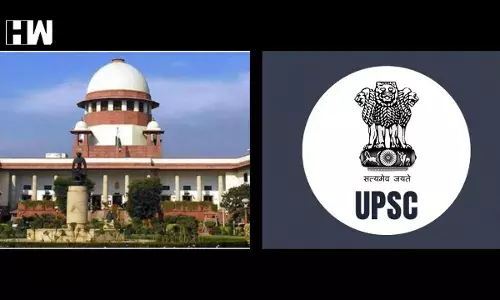New Delhi: After appointing Manoj Malaviya as the acting Director General of Police of West Bengal, Mamata Banerjee led government, is demanding “autonomy” of the state while selecting the DGP. For this they have also moved to Supreme Court.
The appointment of police post has to be taken by the state government in consultation with the Union Public Service Commission (UPSC), as per the earlier Supreme Court Judgments.
The West Bengal government has alleged that the UPSC has no the jurisdiction, and lack the expertise to appoint the DGP of a state.
This development has come amid a tussle between the Trinamool Congress government and the UPSC, for the appointment of DGP.
In the past two months, a series of letters were exchanged between the state government and the UPSC under the Ministry of Home Affairs (MHA), with the latter pointing out several discrepancies in the names proposed by the state for the post. Malaviya is the senior-most police officer in the list of names suggested.
But, this tussle is not new. Tussle over the appointment of State’s DGP has witnessed several Judicial Interventions, by the Supreme Court.
In 2006, the top court passed the landmark Prakash Singh judgment, which stated that the DGP will be appointed by the state government from officers empanelled by the UPSC. Twelve years later, in 2018, the SC clarified the judgment, maintaining the involvement of the UPSC in the appointment process.
However, since then, several states have tried to bypass this requirement through legal and executive orders, asserting that since ‘police’ and ‘public order’ are state subjects, the DGP appointment should exclusively be in the state’s domain.
In the same petition by Salve, the West Bengal application has now been filed, which continues to be pending.
This application informs that state government has passed laws, or orders bypassing the Supreme Court Judgments, because “such States felt that the said direction…restrict and interfere with the ability of the State to appoint a candidate as DGP, who is responsible for administering, controlling and supervising the police service to ensure its efficiency, effectiveness, responsiveness and accountability in the State”.
The petition also focuses on the fact that the police and public order fall in the state list of the Constitution, and so “all matters of promotion, posting and transfer of IPS Officers at all levels within the State are handled exclusively by the state government”.
“The State should have autonomy in selection of DGP,” says the application, adding on any deviation from that Principle will strike at the federal autonomy of the Constitution of India”.
The West Bengal government also notes that Article 320 of the Constitution, which talks about the functions of public service commissions, limits UPSC’s function to providing consultation on principles to be followed in the promotion and transfer of candidates from one service to another and on suitability of candidates for such appointments.
Amid this it argues that the commission is not authorized for selecting the officers for a panel, as directed by the Supreme Court.
The application also states that the UPSC has no power to assess the “merit of the officers.” It is the State government which has s “proximate opportunity to assess the fitness of officers of that rank who had rendered service to the State in the State cadre”.
As an independent media platform, we do not take advertisements from governments and corporate houses. It is you, our readers, who have supported us on our journey to do honest and unbiased journalism. Please contribute, so that we can continue to do the same in future.

